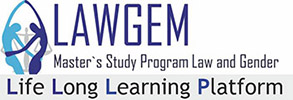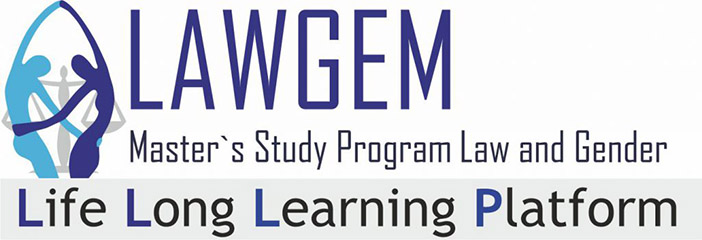As an integral part of developing the master study program “Law and Gender”, a consortium led by the University of Belgrade, Faculty of Law and consisting of Örebro University from Sweden, LUMSA University from Italy, the University of Cadiz from Spain, and Saarland University from Germany, has carried out an empirical study of attitudes towards selected gender issues held by their respective faculty staff within the proposed LAWGEM intellectual output 2 (IO2). This report presents the results and analysis of this mapping, i.e. results of the conducted empirical surveys at each university and the comparative analysis.
There are structural inequalities, in terms of power and other resources, between women and men. The structural differences are visible at the level of organization, but also the level of wider communities, grasped by the notion of gender regimes. There are also implicit beliefs and attitudes, not reflected, internalized, that can influence the evaluation of competencies and achievements. These cultural patterns can be observed at an individual as well as organizational level. The analysis distinguishes between explicit organizational policies and organizational culture, which is more informal and implicit. Furthermore, surveys often demonstrate that university professionals are aware of gender equality and support it as an organizational principle. However, official statistics related to leadership positions in faculties, universities, and projects, then related to support mechanisms for the reintegration of parents after parental leave, etc., as well as the in-depth qualitative research, show structural inequalities in access to various resources. This is the consequence of the interaction of structural and cultural (implicit) patterns. Having this in mind, researchers assumed that gender (in)equality is reproduced in social and University environments and at three levels: at the level of institutions, at the level of the education process and content, and a broader societal level. The overall aim of Empirical Survey Tool (EST) in the LAWGEM project was to investigate and map conditions and attitudes towards gender equality in academic institutions involved in the project.
1.1. Questionnaires
1.1.1. Questionnaire in German
1.1.2. Questionnaire in Italian
1.1.3. Questionnaire in Swedish
1.1.4. Questionnaire in Serbian
1.1.5. Questionnaire in Spanish
1.1.6. Questionnaire in English
1.2. Mapping Gender equality at Belgrade University, Cadiz University, Lumsa University, Saarland University, ÖrebroUniversity

